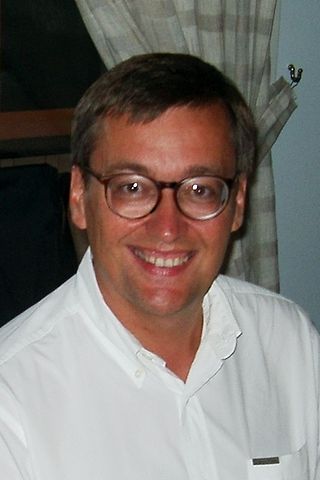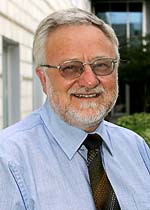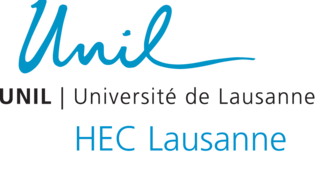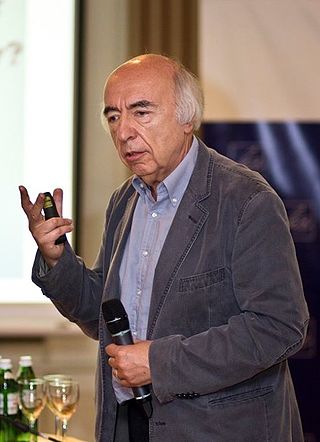Related Research Articles

The University of Lausanne in Lausanne, Switzerland, was founded in 1537 as a school of Protestant theology, before being made a university in 1890. The university is the second oldest in Switzerland, and one of the oldest universities in the world to be in continuous operation. As of fall 2017, about 15,000 students and 3,300 employees studied and worked at the university. Approximately 1,500 international students attend the university, which has a wide curriculum including exchange programs with other universities.

The University of Liège, or ULiège, is a major public university of the French Community of Belgium founded in 1817 and based in Liège, Wallonia, Belgium. Its official language is French.

The Swiss National Bank is the central bank of Switzerland, responsible for the nation's monetary policy and the sole issuer of Swiss franc banknotes. The primary goal of its mandate is to ensure price stability, while taking economic developments into consideration.

Axel Alfred Weber is a German economist, professor, and banker. He is currently a board member and chairman of Swiss investment bank and financial services company, UBS Group AG, and has announced his resignation effective 7 April 2022.

Jean Tirole is a French economist who is currently a professor of economics at Toulouse 1 Capitole University. He focuses on industrial organization, game theory, banking and finance, and psychology. In particular, he focuses on the regulation of economic activity in a way that does not hinder innovation while maintaining fair rules.

Mathias François Dewatripont is a Belgian economist and professor at the Université libre de Bruxelles (ULB) and visiting professor at the Massachusetts Institute of Technology (MIT).

Financial Markets and Portfolio Management (FMPM) is a journal publishing original research and survey articles in all areas of finance, especially in financial markets, portfolio theory, wealth management, asset pricing, risk management, and regulation. Its principal objective is to serve as a bridge between innovative research and practical application. The readers of the journal are researcher, economists, asset managers, financial analysts, and other professionals in finance and related areas.

Georges Dionne is a full professor of finance who holds the Canada Research Chair in Risk Management at HEC Montréal. He has been a visiting scholar in the Department of Risk Management and Insurance at Georgia State University and in the Economics Department at Ecole Polytechnique in France for many years.

HEC Lausanne, also called the Faculty of Business and Economics of the University of Lausanne, is the affiliated business school of the University of Lausanne. Since 1911, HEC Lausanne has been developing teaching and research in the field of business and economics. HEC Lausanne offers Bachelor’s, Master’s, and PhD degrees, as well as executive education, professional certification, and professional development programs, including a part-time Executive MBA, short, open courses, and tailor-made programs for organizations.
Javier Suárez Bernaldo de Quirós is a Spanish economist who is known for his specialization in financial crises.

The Solvay Brussels School of Economics and Management is a school of economics and management, and a Faculty of the Université libre de Bruxelles (ULB), a French-speaking private research university located in Brussels, Belgium. Business education started in 1899, and Solvay was established in 1903 through a donation from the industrialist Ernest Solvay.
Philipp Michael Hildebrand is a Swiss banker who has been a vice chairman of BlackRock since 2012.

Markus Konrad Brunnermeier is an economist, who is the Edwards S. Sanford Professor of Economics at Princeton University.
The Swiss Finance Institute (SFI) is a national center for research, doctoral training, knowledge exchange, and continuing education in the fields of banking and finance. Created in 2006 as a public–private partnership, SFI is a common initiative of the Swiss finance industry, leading Swiss universities, and the Swiss Confederation.
Jean-Pierre Landau is a high-ranking French civil servant.

Thomas Jakob Ulrich Jordan is a Swiss economist and central banker. He is the former chairman of the governing board of the Swiss National Bank, chairman of the Central Bank Counterfeit Deterrence Group, a member of the board of directors of the Bank for International Settlements, and a member of the steering committee of the Financial Stability Board.
Bruno Solnik is a professor of finance at Hong Kong University of Science and Technology in Hong Kong. He was academic director of the HKUST-NYU Master in Global Finance. He is also distinguished emeritus professor of finance at HEC Paris.
Andréa M. Maechler is a Swiss economist.
Marius Brülhart is a Swiss economist and professor of economics at the University of Lausanne. He is the Editor-in-Chief of the Swiss Journal of Economics and Statistics.

Jacques-François Thisse is a Belgian economist, author, and academic. Thisse is Professor Emeritus of Economics and Regional Science at the Catholic University of Louvain and at the École des Ponts ParisTech. Thisse’s work is related to location theory and its applications to various economic fields in which the heterogeneity of agents matters. This includes industrial organisation, urban and spatial economics, local public finance, international trade, and voting. He has published more than 200 papers in scientific journals, including Econometrica, American Economic Review, Review of Economic Studies, Journal of Political Economy, and Operations Research.
References
- ↑ "Swiss National Bank (SNB) - Members of the Governing Board from 1907 onwards" (PDF). www.snb.ch.